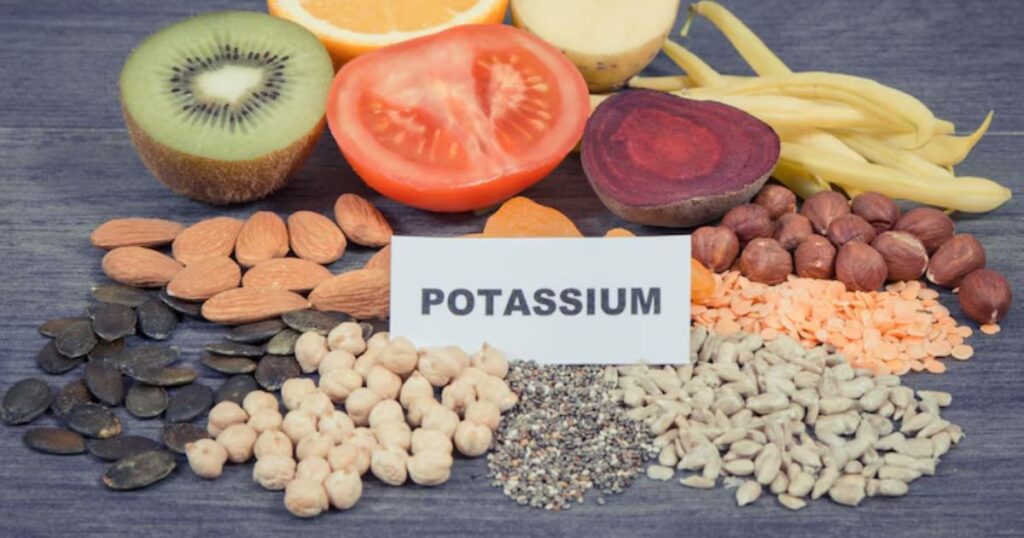Potassium is an important mineral that helps our bodies work well. It is especially important for keeping our hearts beating, our muscles moving, and our nerves sending signals. When our potassium levels drop too low, a condition called hypokalemia happens, which can lead to various health problems.
Many people wonder if having low potassium is a sign of cancer. In this article, we will explore how low potassium levels might indicate cancer. We will also discuss if this is a cause for concern.
What is Hypokalemia (Low Potassium)?
Hypokalemia is a medical condition where potassium levels in the blood are low. This can affect muscle contractions, nerve signals, fluid balance, and blood pressure. Symptoms include muscle weakness, fatigue, irregular heartbeats, numbness, breathing difficulties, and constipation.
What Are Normal Potassium Levels?
Normal potassium levels in the blood typically range between 3.6 to 5.2 milliequivalents per liter (mEq/L).
- Below 3.5 mEq/L: This is considered low and indicates hypokalemia (low potassium levels).
- Above 5.2 mEq/L: This is considered high and indicates hyperkalemia (high potassium levels).
Maintaining potassium levels within this normal range is critical for the healthy function of muscles, neurons, and the heart. Big changes from the normal range can lead to serious health problems. This is especially true for heart function and muscle control.
What Causes Low Potassium?
Low potassium can happen for many reasons. These include excessive sweating, vomiting, diarrhea, and some medications. Certain medical conditions can also affect how the body absorbs or keeps potassium.
- Vomiting or diarrhea: These can cause the body to lose potassium rapidly.
- Excessive sweating: Prolonged sweating, especially without potassium replacement, can lead to low levels.
- Chronic laxative use: This can cause a loss of potassium through bowel movements.
- Urine loss: Some conditions can increase urination. For example, doctors use diuretics, or water pills, to treat high blood pressure. These can lead to a loss of potassium.
- Diuretics: These are the most common cause of hypokalemia. They help the body eliminate extra water and sodium, but they also lead to potassium loss.
- Corticosteroids: Steroids like prednisone can increase potassium loss.
- Antibiotics: Certain types, such as amphotericin B, can lead to hypokalemia.
- Kidney disorders: Some kidney conditions cause excessive loss of potassium in the urine.
- Adrenal gland disorders include conditions like Cushing’s syndrome and hyperaldosteronism. These conditions cause too much aldosterone. This excess aldosterone makes the body lose potassium. Diabetic ketoacidosis: A complication of diabetes that results in low potassium due to shifts in fluid and electrolyte balance.

What Are the Signs and Symptoms of Low Potassium?
Low potassium, or hypokalemia, can cause many signs and symptoms. These depend on how severe the shortage is. Here are the most popular ones:
- Muscle Weakness and Cramps: Potassium regulates muscle function. Low levels might cause muscle weakness, cramping, and twitching.
- Fatigue: Because potassium supports cellular energy generation, people often feel especially tired or fatigued.
- Irregular Heartbeat (Arrhythmia): The body requires potassium for normal heart function. Low levels might result in irregular heart rhythms or palpitations, which may feel like your heart is skipping a beat.
- Constipation: Potassium regulates muscle contractions, including those in the digestive tract. Low potassium levels can impede digestion, resulting in constipation.
- Tingling or Numbness: Low potassium levels can cause tingling or numbness, especially in the limbs.
- Breathing problems: In severe cases, low potassium can harm the muscles that help us breathe. This can make it hard to breathe or cause shortness of breath.
- High Blood Pressure: Potassium regulates sodium levels in the body. Low levels can lead to higher blood pressure.
- Increased Thirst and urine: Low potassium levels can impair renal function, causing increased thirst and urine.
- Abdominal Pain and Bloating: As the digestive muscles slow down, some persons may experience abdominal discomfort or bloating.
- Mood Changes: People with low potassium levels may experience mood swings, irritability, or sadness.
Is Low Potassium a Sign of Colon Cancer?
Colon cancer can cause low potassium levels, which is not a direct sign of the cancer. Symptoms such as chronic diarrhea, bowel obstruction, and hormonal effects can lead to low potassium levels.
However, low potassium alone is not a reliable sign of colon cancer. Other common symptoms include changes in bowel habits, blood in stool, abdominal pain, and unexplained weight loss.

Symptoms of Colon Cancer
Colon cancer, also known as colorectal cancer, may not present symptoms in its early stages. However, as the condition worsens, some frequent symptoms can include:
- Changes in bowel habits: Diarrhea, constipation, or the sensation that the gut does not empty fully. Consistently narrow or thin stools.
- Rectal bleeding: Blood in the stool (may be bright red or very dark), or rectal bleeding for no apparent reason.
- Unexplained weight loss: Losing weight without effort, which can indicate a variety of diseases, including colon cancer.
- Abdominal Pain: Abdominal discomfort refers to persistent cramping, gas, or abdominal pain. Bloating or feeling full even after a light meal.
- Fatigue happens when you feel very tired or weak. Blood loss or other cancer-related problems can cause this.
- Anemia: Iron deficiency anemia, which is commonly identified by blood testing, may indicate persistent blood loss from the colon.
- Persistent urge to defecate: The feeling that you need to have a bowel movement even while your bowels are empty.
Types of Cancer Associated with Low Potassium
Cancer usually does not cause low potassium. However, researchers can link it to some types of cancer or cancer treatment. It may occur as a result of cancer consequences, cancer therapy, or disorders that alter potassium regulation. Low potassium is connected with the following kinds of cancer:
1. Kidney (renal) Cancer:
Kidney cancer can cause an electrolyte imbalance, especially potassium, due to the kidney’s function in regulating electrolyte balance. Tumors or renal injury can impede its function and result in hypokalemia.
2. Adrenal Tumors (including Aldosteronoma):
Adrenal gland tumors, particularly those that produce an excess of aldosterone (a hormone that regulates potassium levels), can induce primary hyperaldosteronism. This disorder causes excessive potassium excretion by the kidneys, resulting in hypokalemia.
3. Gastrointestinal (GI) Cancers:
Cancers in the stomach, intestines, or pancreas can induce prolonged vomiting or diarrhea, resulting in considerable potassium loss. GI malignancies may potentially impair nutrition absorption, reducing potassium levels.
4. Leukemia and Lymphoma:
These blood malignancies might produce increased potassium excretion from the kidneys. Chemotherapy for various tumors can cause hypokalemia as a side effect.
5. Lung Cancer:
Paraneoplastic syndromes occur when certain lung malignancies emit hormones or substances that affect other sections of the body. This can lead to electrolyte imbalances such as low potassium.
6. Ovarian Cancer:
Ovarian cancer can cause ascites, which is fluid buildup in the belly. It can also lead to electrolyte problems. This may result in low potassium levels, especially if the cancer affects kidney function or causes vomiting.

Conclusion
Low potassium usually isn’t a sign of cancer. However, it can occur due to cancer treatments or some cancers. This includes kidney or adrenal cancer.
It’s important to check potassium levels regularly. Getting the right treatment helps keep them healthy, especially for cancer patients. If you notice any signs of low potassium, talk to your doctor for help and the right care.
People Also Ask
1. What is low potassium?
Low potassium levels indicate that your body may not have enough a vital mineral. Potassium helps your muscles and nerves function properly. It also promotes heart health. Doctors check potassium levels with a blood test.
2. Can low potassium mean I have cancer?
A low potassium level does not necessarily indicate malignancy. It can happen for many reasons. One reason is not getting enough potassium.
Another reason is losing too much through sweat or urine. However, some cancer patients may experience low potassium levels as a result of their illness or therapy.
3. What causes low potassium levels?
These include not eating enough fruits and vegetables. They can also occur from losing fluids due to vomiting or diarrhea. Certain medications can cause low potassium levels too. It can also occur with certain health conditions, such as cancer.
4. What are the symptoms of low potassium?
Low potassium can cause muscle weakness, cramping, fatigue, and cardiac difficulties. If you experience any of these symptoms, you should consult a doctor, who can assist you determine the cause.
5. How can I get more potassium?
Consuming potassium-rich foods will provide you with more of this mineral. Bananas, oranges, potatoes, spinach, and beans are excellent suppliers. Drinking plenty of water and eating a well-balanced meal will also help you maintain appropriate potassium levels.









Leave a Reply